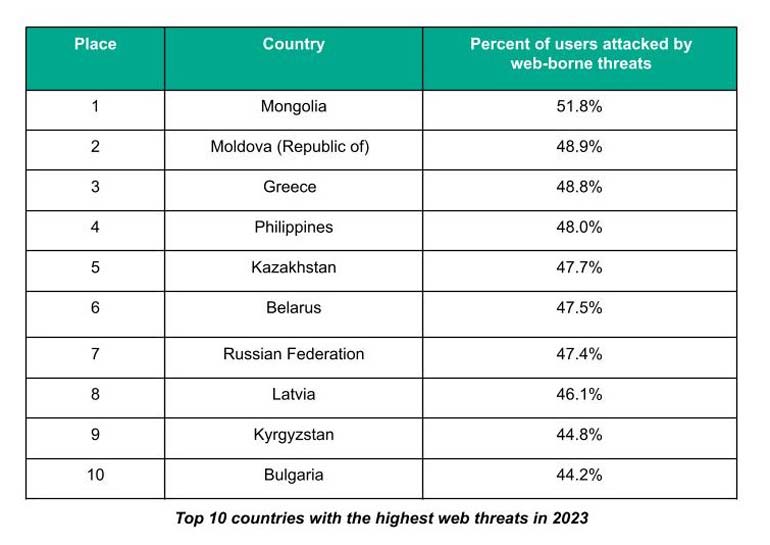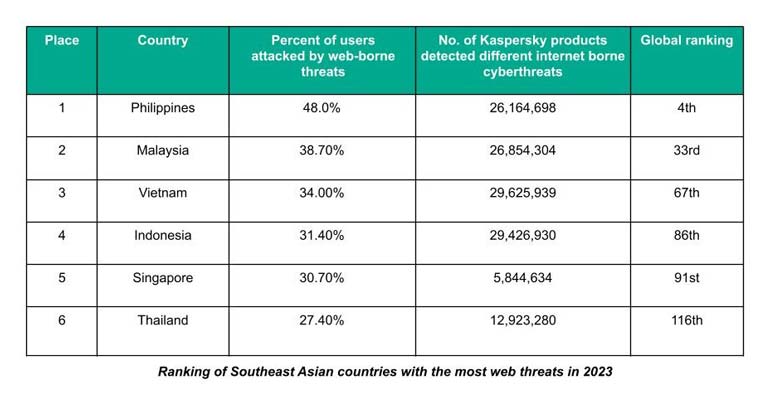The Philippines slid to the fourth spot in the global ranking of countries most targeted by online threats in 2023, according to a report by cybersecurity firm Kaspersky.
The Kaspersky Security Network (KSN) report showed that web threats targeting the Philippines decreased by about two percent, from 49.8% in 2022 to 48% in 2023. However, this does not mean that the country is safe from cyberattacks, as Kaspersky cautioned against dropping the armor.
Yeo Siang Tiong, General Manager for Southeast Asia at Kaspersky, said that there are two possible reasons for the drop in web threats. One is that the country is slowly improving its cybersecurity measures and regulations. The other is that cybercriminals are shifting to other attack methods that might be less detectable, such as targeted attacks.
“Complacency, however, is still not an option. Cybercriminals continue to develop their tools and techniques. They actually surprise cybersecurity experts all the time. Our mindset should be how to be able to hunt threats before they could cause harm and damage. At this point, I recommend that we should be talking more about threats as we proactively learn to detect and respond to them. This is where threat intelligence comes in handy,” Yeo added.
Web or online threats are attacks through browsers that can spread malware with or without the victim’s participation. Some web threats involve social engineering, where the victim is tricked into clicking an infected link, attachment, or website. Others involve drive-by downloads, where the victim’s device is infected automatically by visiting a compromised website.
In the recent global ranking, the Philippines was behind Mongolia (51.8%), Moldova (48.9%) and Greece (48.8%). The country has been in the top 10 list of countries most targeted by web threats since 2019.

Among Southeast Asian countries, the Philippines was followed by Malaysia, which had 47.6% of users attacked by web threats from January to December 2023.

To stay protected, Kaspersky recommends the following:
- Do not download and install applications from untrusted sources
- Do not click on any links from unknown sources or suspicious online advertisements
- Create strong and unique passwords, including a mix of lower case and upper case letters, numbers, and punctuation, as well as activate two-factor authentication
- Always install updates
- Ignore messages asking to disable security systems for office or cybersecurity solution
- Use a robust cybersecurity solution appropriate to your system type and devices
For more information on how to protect yourself from web threats, visit https://www.kaspersky.com/.
Image credit: Unsplash



